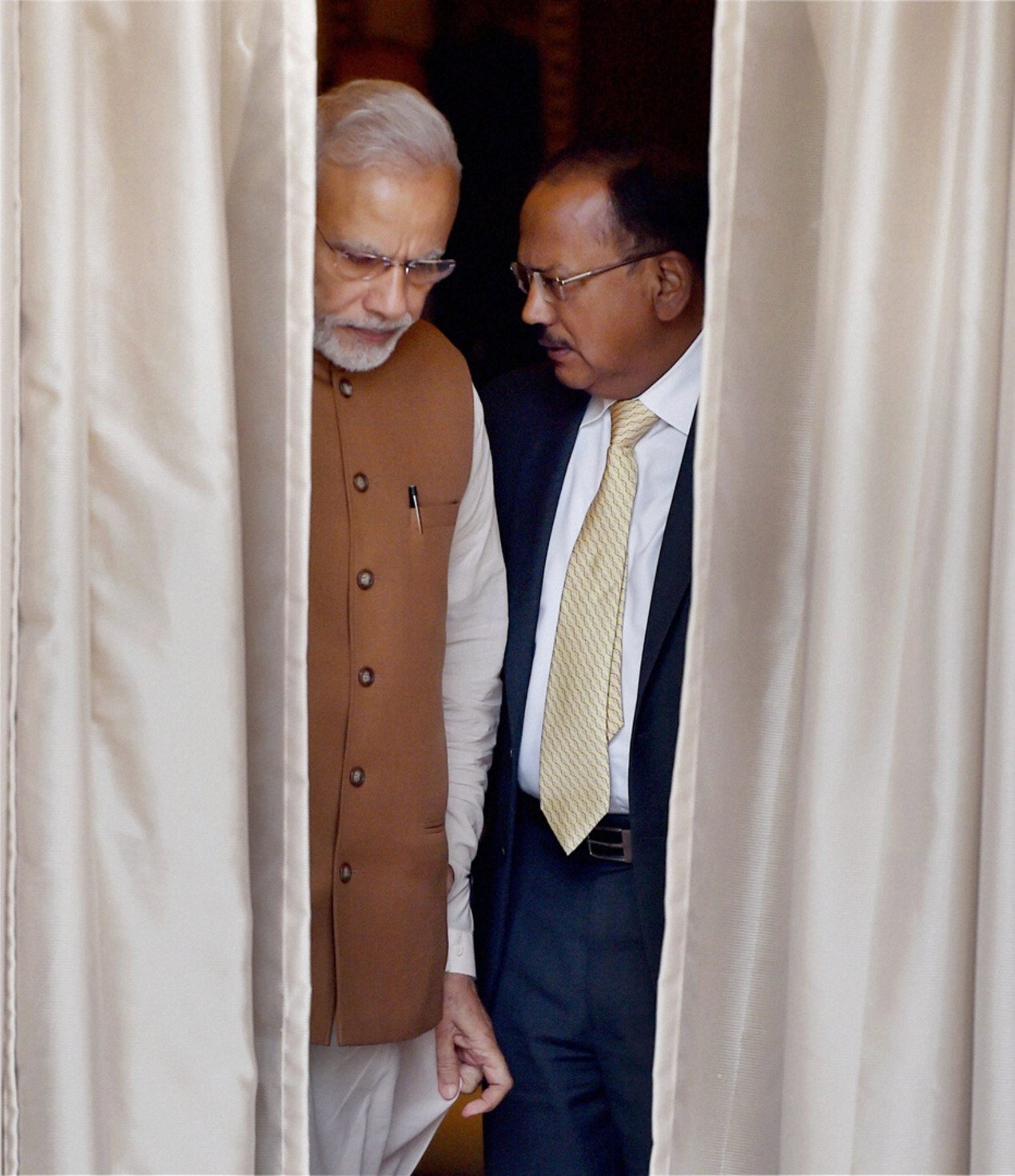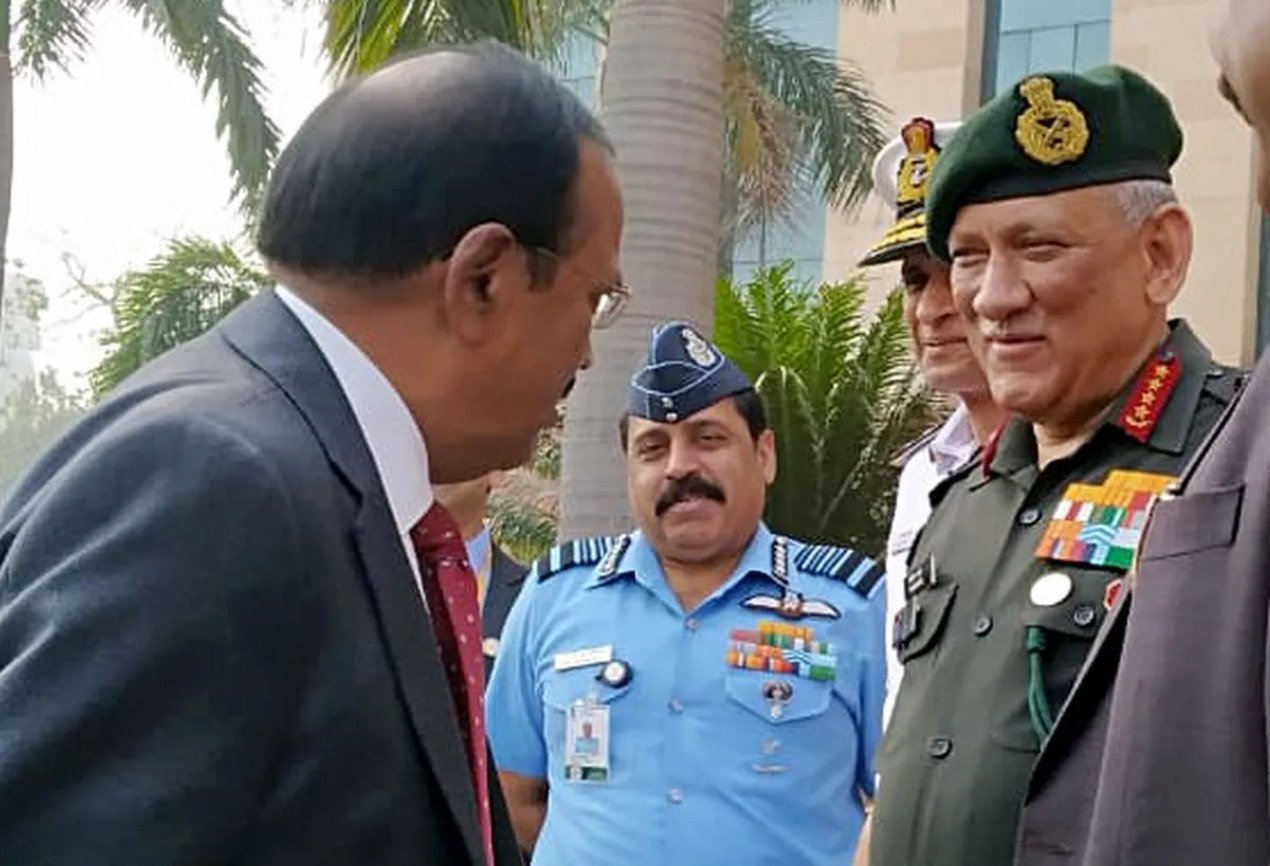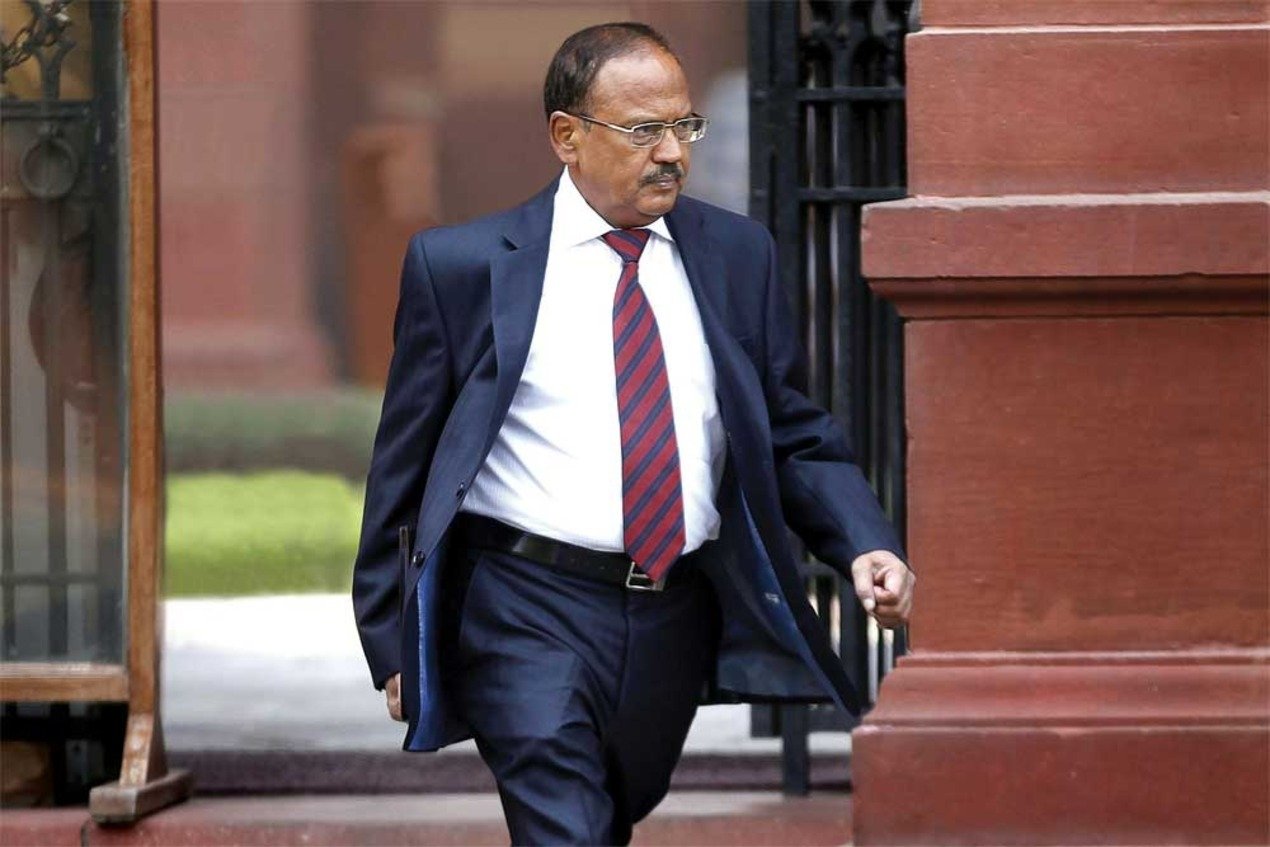Introduction
Ajit Kumar Doval, KC, PPM often referred to as the “James Bond of India,” is one of the most distinguished and respected figures in the realm of national security and strategic policy in India. With a career spanning over five decades, his contributions to strengthening India’s internal and external security framework have been monumental. From covert operations to diplomatic maneuvers, Doval’s achievements reflect his profound dedication and unparalleled expertise in safeguarding the nation.
This article delves into Ajit Doval’s illustrious career, his key achievements, and his impact on India’s security landscape.

Early Life and Education
Ajit Kumar Doval was born on January 20, 1945, in Ghiri Banelsyun village in Pauri Garhwal, then part of the United Provinces in British India (now Uttarakhand). His father served in the Indian Army, which exposed Doval to the ethos of discipline and patriotism from a young age.
Doval pursued his education at Ajmer Military School, Rajasthan, did his graduation from Meerut College, Meerut and later earned a Master’s degree in Economics from Agra University. This academic foundation provided him with critical analytical skills, which later proved invaluable in his strategic and diplomatic roles.
Career in the Indian Police Service (IPS)
Ajit Doval joined the Indian Police Service (IPS) in 1968, becoming part of the Kerala cadre. His exceptional skills and determination quickly set him apart, and he soon transitioned to specialized roles in intelligence and counterterrorism.
Key Contributions During IPS Tenure:
- Counter-Insurgency Operations in Mizoram and Punjab: Doval played a pivotal role in neutralizing insurgent movements in Mizoram and Punjab during the 1980s. His ability to gain the trust of locals and infiltrate hostile groups earned him accolades.
- Operation Blue Star: Though not directly involved in the operation, Doval’s intelligence-gathering efforts were instrumental in laying the groundwork for the mission to neutralize militants holed up in the Golden Temple in 1984.
- Negotiations with Hostage-Takers: Doval’s negotiation skills were displayed during several critical hostage crises, including incidents where he successfully persuaded militants to release captives without violence.

Transition to Intelligence and Covert Operations
Ajit Doval’s career trajectory took a decisive turn when he joined the Intelligence Bureau (IB). He eventually became the head of its operations wing, gaining unparalleled experience in counterintelligence and covert operations.
Doval is the first non-military personnel to be awarded the second highest peace time gallantry award Kirti Chakra for his bravery and courage.
Notable Operations:
- Undercover in Pakistan: Doval spent seven years in Pakistan disguised as a Pakistani national. During this time, he gathered critical intelligence about enemy operations and infrastructure, significantly aiding India’s strategic interests.
- Neutralizing Insurgencies in the Northeast: His efforts in the Northeastern states were instrumental in bringing militant leaders to the negotiation table, leading to peace accords and reduced insurgent activity.
- Surgical Strategy in Myanmar: In the 1990s, Doval played a key role in coordinating counter-insurgency operations along the Indo-Myanmar border, ensuring a decisive blow to insurgent groups operating in the region.
The National Security Advisor (NSA) Era
Ajit Doval was appointed as India’s fifth National Security Advisor (NSA) in 2014 by Prime Minister Narendra Modi. As NSA, Doval has become the principal architect of India’s security and foreign policies, overseeing critical decisions and operations.
Key Achievements as NSA:
- Surgical Strikes (2016): In response to the Uri attack, India conducted surgical strikes across the Line of Control (LoC) in Pakistan-occupied Kashmir. Doval played a pivotal role in planning and executing this operation, marking a shift in India’s stance on cross-border terrorism.
- Balakot Airstrike (2019): Following the Pulwama terror attack, Doval was instrumental in overseeing the Balakot airstrike, where Indian Air Force jets targeted a major terrorist training camp in Pakistan. This operation reinforced India’s commitment to responding decisively to terrorism.
- Doklam Standoff Resolution (2017): During the Doklam standoff between India and China, Doval’s diplomatic and strategic acumen ensured a peaceful resolution while maintaining India’s territorial integrity.
- Revocation of Article 370: Doval played a key role in managing the security situation during the abrogation of Article 370 in Jammu and Kashmir in 2019. His groundwork ensured minimal unrest and effective implementation of the government’s decision.
- Strengthening Cybersecurity: Recognizing the importance of cyber defense, Doval has been at the forefront of building India’s cybersecurity infrastructure, ensuring resilience against cyber threats.

Vision for India’s Security Framework
Ajit Doval’s approach to national security extends beyond immediate threats. His vision emphasizes a proactive and comprehensive framework that addresses both traditional and emerging challenges.
- Proactive Defense Strategy: Doval advocates for a proactive defense mechanism, where potential threats are neutralized before they materialize. This approach has been evident in India’s counter-terrorism and cross-border operations.
- Focus on Maritime Security: Understanding India’s strategic position in the Indian Ocean, Doval has prioritized strengthening maritime security, ensuring the safety of trade routes and countering naval threats.
- Emphasis on Regional Stability: Doval has consistently worked towards maintaining stability in South Asia, engaging with neighboring countries to address shared security concerns.
Recognition and Awards
Ajit Doval’s contributions have earned him numerous accolades, both nationally and internationally. Notable recognitions include:
- Kirti Chakra: Doval is the first civilian to receive this prestigious military honor for his bravery during counter-insurgency operations in Mizoram.
- Padma Shri (2017): Awarded for his exceptional service in the field of civil service and national security.
Personal Traits and Leadership Style
Doval’s effectiveness as a strategist stems from his meticulous planning, adaptability, and ability to think several steps ahead. His leadership style inspires trust and confidence among his team, ensuring seamless execution of complex operations.
He is known for his calm demeanor and ability to handle high-pressure situations with composure. These traits have been critical in diffusing crises and making tough decisions.

Challenges and Criticisms
Despite his achievements, Doval’s tenure has not been without challenges. Some critics argue that his emphasis on a hardline approach may escalate tensions in sensitive regions. Others have questioned the long-term implications of certain decisions, such as the revocation of Article 370.
However, Doval’s supporters assert that his strategies are rooted in securing India’s interests and ensuring stability in the face of evolving threats.
Legacy and Future Impact
Ajit Doval’s contributions have redefined India’s approach to national security and strategic policy. His legacy lies in transforming India into a nation that takes decisive action against threats while maintaining its position as a responsible global player.
Doval’s role in fostering international partnerships, such as enhancing cooperation with the United States and strengthening ties with Quad nations, underscores his vision for a secure and globally integrated India. His efforts in counter-terrorism have set benchmarks for other nations, showcasing India as a leader in combating global threats.
Encouraging Young Leaders:
Doval’s success has also inspired a new generation of policymakers and security experts in India. By emphasizing professionalism, ethics, and a forward-thinking approach, he has left a roadmap for others to follow in building a robust security apparatus.
Conclusion
Ajit Doval’s journey from a young IPS officer to India’s National Security Advisor is a testament to his unwavering commitment to the nation. His achievements in intelligence, counter-terrorism, and diplomacy have cemented his status as one of India’s most influential figures in national security.
Through his visionary leadership, Doval has not only safeguarded India’s interests but also inspired a generation of policymakers and security professionals. As India navigates a complex global landscape, Ajit Doval remains a pillar of strength and a symbol of resilience. His legacy will continue to shape India’s strategic future, ensuring a secure and prosperous nation for generations to come.
